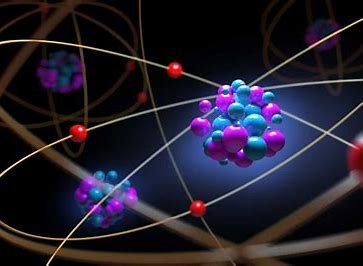ASP Isotopes and Isotopia Forge Strategic Alliance to Secure Gd-160 Supply for Next-Gen Cancer Radiotherapeutics
02 June 2025 | Monday | News

Image Source : Public Domain
ASP Isotopes Inc. (NASDAQ: ASPI) and Isotopia Molecular Imaging Ltd. have entered into a strategic agreement to secure the supply of Gadolinium-160 (Gd-160), a critical precursor isotope for producing Terbium-161 (Tb-161), an emerging medical isotope with significant potential in targeted radiotherapeutics.
This partnership addresses longstanding supply challenges for Gd-160, enabling Isotopia to advance Tb-161-based therapies for prostate cancer, neuroendocrine tumors, and other malignancies.
Under the agreement, ASP Isotopes will leverage its proprietary Quantum Enrichment technology to provide Isotopia with enriched Gd-160, a stable isotope essential for manufacturing Tb-161.
The collaboration combines ASP Isotopes' expertise in large-scale isotope enrichment—previously demonstrated through its production of Ytterbium-176 (Yb-176)—with Isotopia's proven capabilities in commercial-scale medical isotope production. Isotopia has consistently manufactured Lutetium-177 (Lu-177) and maintained weekly Tb-161 production for its clinical trials over the past two years.
Paul Mann, CEO of ASP Isotopes, emphasized the agreement's significance: "By supplying Gd-160, we are eliminating a major bottleneck in the development of Tb-161 therapies. Our investment in enrichment technology positions us to support the radiopharmaceutical industry's growing demand for stable isotopes. This partnership accelerates the path to clinical adoption of Tb-161, which could redefine cancer treatment paradigms."
Dr. Eli Shalom, CEO of Isotopia, highlighted Tb-161's therapeutic advantages: "Tb-161's dual mechanism of action, including Auger electron emissions, enables precise targeting of micro-metastases while minimizing damage to healthy tissues. This partnership ensures a reliable Gd-160 supply chain, allowing us to scale production and advance our Tb-161-labeled drug candidates toward commercialization. We produce in our site in Israel and shortly the production will start in our second site in Indianapolis in the US."
Tb-161's Auger electrons induce double-strand DNA breaks in cancer cells, offering potential advantages over Lu-177 and alpha-emitting isotopes. This precision aligns with the oncology field's shift toward targeted radiotherapeutics, which improve efficacy and reduce side effects. The agreement comes as global interest in radiopharmaceuticals surges, driven by their ability to deliver localized radiation therapy via tumor-seeking molecules.
Most Read
- How Does GLP-1 Work?
- Innovations In Magnetic Resonance Imaging Introduced By United Imaging
- Management of Relapsed/Refractory Multiple Myeloma
- 2025 Drug Approvals, Decoded: What Every Biopharma Leader Needs to Know
- BioPharma Manufacturing Resilience: Lessons From Capacity Expansion and Supply Chain Resets from 2025
- APAC Biopharma Review 2025: Innovation, Investment, and Influence on the Global Stage
- Top 25 Biotech Innovations Redefining Health And Planet In 2025
- The New AI Gold Rush: Western Pharma’s Billion-Dollar Bet on Chinese Biotech
- Single-Use Systems Are Rewiring Biopharma Manufacturing
- The State of Biotech and Life Science Jobs in Asia Pacific – 2025
- Asia-Pacific Leads the Charge: Latest Global BioSupplier Technologies of 2025
- Invisible Threats, Visible Risks: How the Nitrosamine Crisis Reshaped Asia’s Pharmaceutical Quality Landscape
Bio Jobs
- Sanofi Turns The Page As Belén Garijo Steps In And Paul Hudson Steps Out
- Global Survey Reveals Nearly 40% of Employees Facing Fertility Challenges Consider Leaving Their Jobs
- BioMed X and AbbVie Begin Global Search for Bold Neuroscience Talent To Decode the Biology of Anhedonia
- Thermo Fisher Expands Bengaluru R&D Centre to Advance Antibody Innovation and Strengthen India’s Life Sciences Ecosystem
- Accord Plasma (Intas Group) Acquires Prothya Biosolutions to Expand Global Plasma Capabilities
- ACG Announces $200 Million Investment to Establish First U.S. Capsule Manufacturing Facility in Atlanta
- AstraZeneca Invests $4.5 Billion to Build Advanced Manufacturing Facility in Virginia, Expanding U.S. Medicine Production
News












